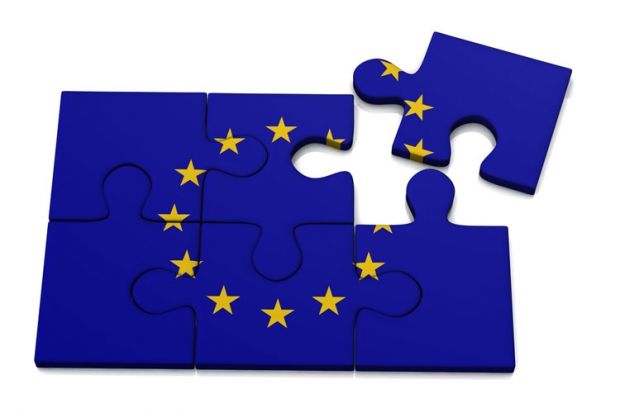Dame Julia Goodfellow, vice-chancellor of the University of Kent, which bills itself as “the UK’s European university”, made the comments to mark Europe Day on 9 May.
She said withdrawal from the EU would harm the UK’s research base and the economic benefits it draws from continental European students.
Dame Julia’s message is at odds with that of another Kent resident, Ukip leader Nigel Farage, who lives in the village of Downe.
“Many voices are calling for the withdrawal of the United Kingdom from the EU,” said Dame Julia. “Yet to do so would be bad for higher education – and much worse for our students and their future.”
She praised the EU as a “common economic space within which talent can move freely”, pointing out that around 20 per cent of Kent staff come from other countries within the EU and that the university has study centres in Brussels, Paris, Athens and Rome.
Dame Julia also argued that the UK “secures a disproportionate amount of EU research, development and innovation funding, over €6 billion (£4.9 billion)”. And she said the nature of EU research funding means that it allows projects that individual member states could not undertake alone, in which the “high reputation of UK researchers” means they are able to “influence the European agenda”.
She continued: “The idea that we could outside the EU secure even a fraction of the money or influence is not viable.”
On the economic benefits, she noted that “the direct financial gain from EU students in fees and living expenses has been estimated at £2 billion a year, with the indirect benefits being even higher”. And she pointed out that EU mobility programmes such as Erasmus “represent the single biggest source of funding for UK students and staff hoping to pursue a study or work placement abroad”.
Dame Julia concluded: “Last, our membership of the EU matters because it helps define our view of ourselves.”
And she added: “By turning our back on the most important institution in our region, we would be damaging not just ourselves but also, much more importantly, our children and young people. We would do our students a severe disservice in restricting their ability to compete in the global economy.”
Register to continue
Why register?
- Registration is free and only takes a moment
- Once registered, you can read 3 articles a month
- Sign up for our newsletter
Subscribe
Or subscribe for unlimited access to:
- Unlimited access to news, views, insights & reviews
- Digital editions
- Digital access to THE’s university and college rankings analysis
Already registered or a current subscriber? Login




